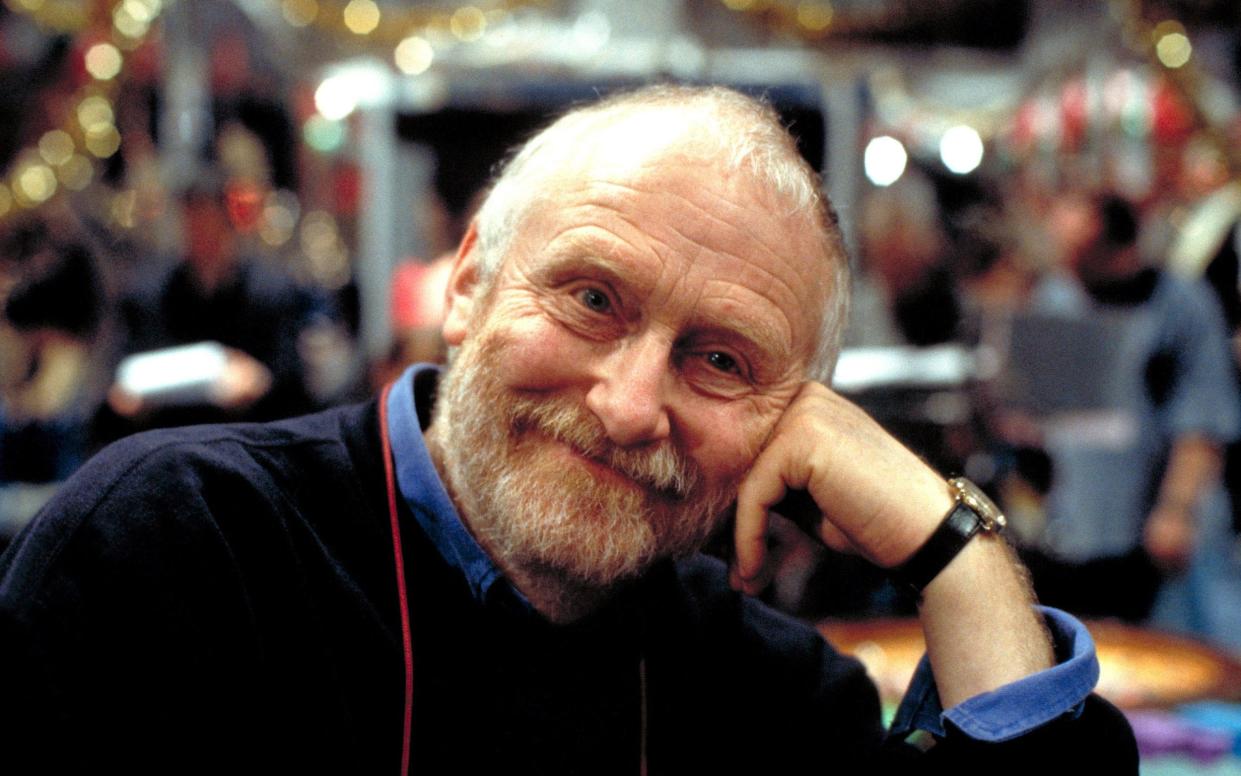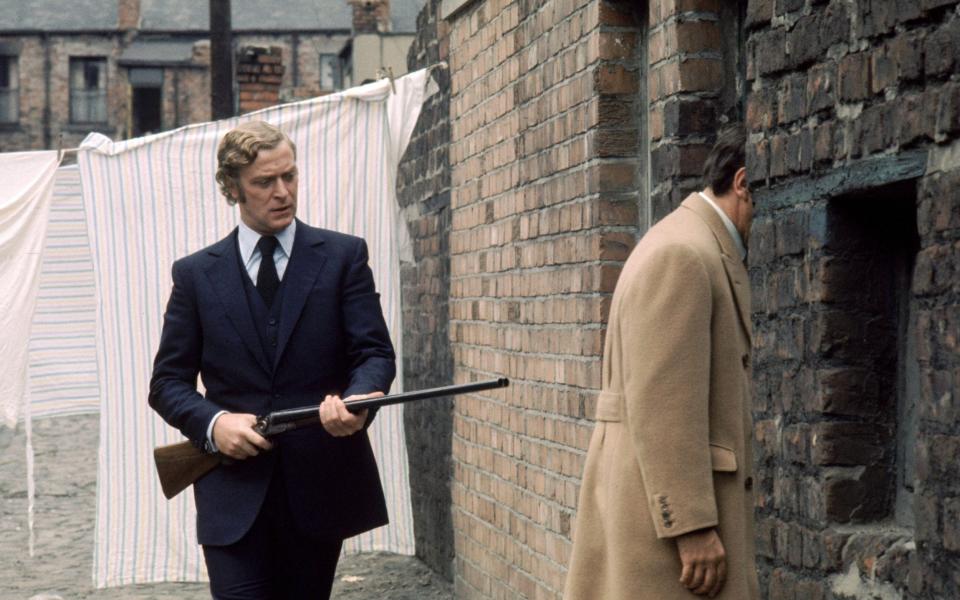Mike Hodges, film director best known for the Michael Caine gangster movie Get Carter and the camp space opera Flash Gordon – obituary

Mike Hodges, who has died aged 90, directed the gangster classic Get Carter (1971), starring Michael Caine and Britt Ekland, the space-opera movie Flash Gordon (1980), featuring Brian Blessed in leather underpants and Max von Sydow as Ming the Merciless, and the stylish thriller Croupier (1998) that became an unlikely hit in America after being abandoned by its British distributor.
Get Carter is regarded as one of the finest gangster films ever made, with its black-hearted chronicle of beatings, shootings, stabbings, naked prostitutes and verminous gangster potentates unfolding within an almost totally corrupted working-class milieu. It features a thuggish Caine as Jack Carter, a chain-smoking London gangster who travels to his home city of Newcastle to investigate his brother’s mysterious death in a car accident.

Hodges had been due to direct Damien: Omen II (1978) but withdrew after one of the producers pulled a gun during a heated argument over budgets. “He didn’t actually aim it at me. He just withdrew it from his bag and pointedly laid it on the desk,” he told The Daily Telegraph. “I asked him what he meant by it, and he said he’d love to shoot me, but couldn’t, because there would be consequences.” He was replaced by Don Taylor but retained his screenwriter’s credit.
Just as commentators were labelling him a crime director, his next major hit was the uproarious Flash Gordon, a camp take on the comic strip with a glorious pomp-rock soundtrack by Queen. He took over from Nicolas Roeg, who had found himself at odds with Dino de Laurentiis, the Italian producer, but was soon consumed by self-doubt. “All my films had been rooted in fairly gritty problems and this was a big film with a big budget and lots of special effects,” he said.
He had, however, just walked out of Omen II. “My career didn’t look very promising at that point,” he confessed. “If you leave a film, people regard you as difficult. But I had a family, and Dino flew me to New York on Concorde and provided me with the bumper fun book of Flash Gordon.”
Hodge’s spasmodic career was never consistent and his enigmatic, often unclassifiable work was often received with suspicion and bafflement. Croupier, a darkly comic tale about gambling and writing starring Clive Owen, was not so much released as dumped by Channel 4 Films. Yet in the US it became a “sleeper hit”, one of those films that finds an enthusiastic audience despite no publicity.
Some of Hodges’s experiences in film-making were channelled into Shooting Stars and Other Heavenly Pursuits, a play about the industry that he wrote and directed for the Old Red Lion Theatre in North London in 2001 and later adapted for radio. “Hopefully it’s funny, strange and surreal,” he explained. “Like the business itself.”

Michael Tommy Hodges was born in Bristol on July 29 1932, the son of Graham Hodges and his wife Norah, née Cottrell, “a nice conservative middle-class West Country couple”. He was brought up in Salisbury, losing himself in the films of Billy Wilder and Elia Kazan at the city’s three cinemas.
At his parents’ bidding he studied to be a chartered accountant before National Service in a Royal Navy minesweeper, from where he caught his first glimpses of the vibrant yet squalid docks of Newcastle-upon-Tyne and other fishing ports. “Those places opened my eyes to how tough life in Britain could be,” he said, adding on another occasion: “I went to sea as a clean-cut Young Conservative and came back as a socialist.”
On demobilisation he became a teleprompter operator on live television productions such as The Billy Cotton Band Show, while in his free time he began writing scripts. Landing on Granada TV’s World in Action he investigated real gangland stories in Newcastle, covered Barry Goldwater’s 1964 campaign for the US presidency and visited Vietnam. “I knew the war was lost when I found out it stopped on Sundays,” he told LA Weekly magazine.
Moving into producing and documentary-making, he discovered a niche in Sunday-afternoon arts programming, “just before the God slot, so nobody really gave a stuff what you did”, he said, though a jaggedly experimental 1967 episode of the culture show New Tempo titled “Information Explosion” had the ITV switchboard jammed with complaints. Rumour and Suspect, two films for Thames TV, helped him to land the Get Carter job.
Hodges was reunited with Caine in the comedy thriller Pulp (1972), in which Caine’s Mickey King, a writer of pulp novels, risks being pulped himself when he is contracted to ghost-write the autobiography of Mickey Rooney’s retired movie star who has criminal connections. The Terminal Man (1974), his first Hollywood movie, continued his preoccupation with the crushing of the innocent by powerful and corrupt forces and featured George Segal as a scientist whose brain is fitted with a computer chip designed to curb his violent psychopathic black-outs.
During the 1980s Hodges directed the comedy science-fiction film Morons from Outer Space (1985) that was written by and starred Griff Rhys Jones and Mel Smith, the IRA thriller A Prayer for the Dying (1987) with Mickey Rourke and Bob Hoskins, and the psychological drama Black Rainbow (1989), featuring Rosanna Arquette as a medium who foresees a killing.

He also made a handful of television films, including Squaring the Circle (1984), an adaptation of Tom Stoppard’s play about the Polish Solidarity trade union movement and its leader, Lech Walesa, taking on the Communist regime.
After the initial failure of Croupier, Hodges retired to grow vegetables in Dorset. When the tide turned he returned to the director’s chair for the portentously titled I’ll Sleep When I’m Dead (2003) in which Owen’s Will Graham re-enters the criminal underworld after his brother Davey (Jonathan Rhys Meyers) appears to have taken his own life in mysterious circumstances.
Hodges, a diminutive figure with a round face, thinning sandy hair and a beard, published a novel, Watching the Wheels Come Off, in 2010. Last year he was the subject of a BFI retrospective, Return of the Outsider, which brought all his main feature films back to the big screen along with his Bafta-winning 1994 television miniseries Dandelion Dead, the true story of a solicitor in Hay-on-Wye who was hanged in 1922 for the murder of his wife and the attempted murder of a business rival.
When Stephen Kay directed a 2000 Hollywood remake of Get Carter with the action relocated from Newcastle to Seattle and a leaden Sylvester Stallone in Caine’s role, Hodges vowed not to watch it, though Caine had a cheeky cameo part. A couple of years later his son brought the DVD back from Hong Kong and one night he got drunk and put it on, but the system was not compatible and the disc would not play, “so we put it in the dustbin”.
Mike Hodges married Jean Alexandrov in 1963. That was dissolved in 1982, in part, he observed, from the stress of maintaining their lifestyle. “The kids were going to private school and we had the country house and the town flat and two cars and God knows how many television sets in every room,” he said.
In 2004 he married Carol Lawes, who survives him with two sons.
Mike Hodges, born July 29 1932, died December 17 2022

 Yahoo News
Yahoo News 